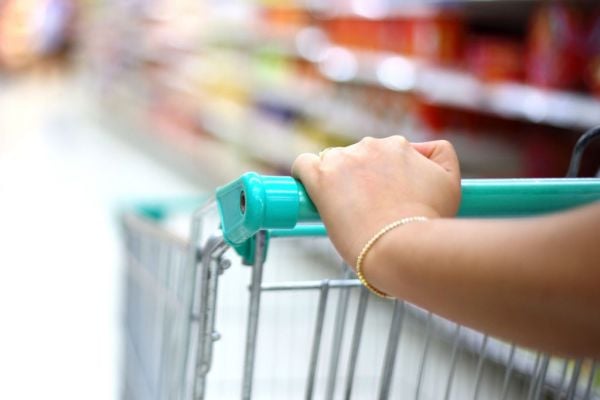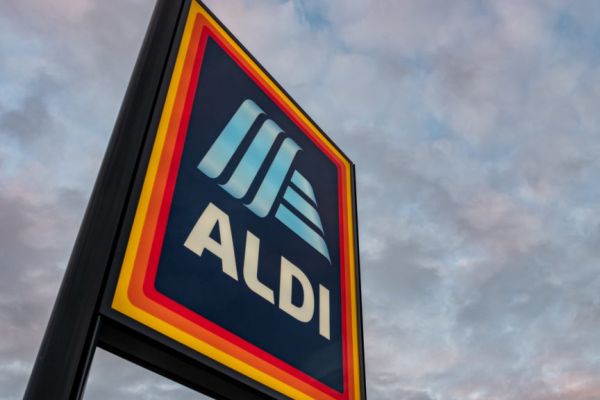European retailers are locked in extended price negotiations with giant food companies – including the world’s biggest, Nestlé – as they fight to retain shoppers and protect their profits.
Major consumer product companies across the world have announced plans to boost prices at a faster pace than last year, as they seek to curb the impact of soaring raw-material costs on their margins.
Early this month, European Central Bank president Christine Lagarde flagged rising food prices as a significant contributor to January’s unexpectedly high overall inflation in Europe, which, she said, caught the ECB off-guard.
Ahold Delhaize – the owner of more than 20 retail brands, including Albert Heijn in the Netherlands and Stop & Shop in the United States – told Reuters on Wednesday that it had kept underlying operating margins stable, at 4.4% – in part – by negotiating prices.
Earlier this year, the company’s Albert Heijn chain – the largest Dutch supermarket – removed Nestlé products, including Maggi, Kit Kat and Nescafé, from its stores because Nestlé increased prices.
“We did have some tough negotiations with Nestlé. [...] It was a place where we said we just don’t take prices if they’re not acceptable proposals,” Ahold finance chief Natalie Knight said in an interview, adding that the supermarket had reached a “good conclusion” with Nestlé.
“I think we’ve been very successful, so far, in making sure only the most necessary costs are passed on to customers,” Knight said.
Complex Negotiations
Knight, along with industry experts, said that negotiations were taking longer than usual because of the complexity of factors.
Consumer goods companies typically agree annual pricing contracts with retailers towards the end of each year in many parts of Europe.
Four industry experts told Reuters that, in many cases, negotiations have stretched into 2022, or have been reopened after having, in theory, been concluded.
A spokesperson for Nestlé said that the pressures included more expensive raw materials, packaging, energy, logistics and labour. The impact has eroded Nestlé’s margins. On Thursday, it reported a 30-basis-point decline in its full-year underlying trading operating profit margin, to 17.4%.
Nestlé announced that it raised overall prices by 3.1% in the fourth quarter, and by 2.5% in Europe, the Middle East and North Africa. The company increased quarterly prices by 5.2% in the Americas.
When asked if Nestlé had found it difficult to raise prices quickly, CEO Mark Schneider said that the way that contracts were structured meant that there were “certain dates where you can reset prices”.
Belgian low-cost supermarket chain Colruyt told Reuters that it was among those still in talks with some food-makers.
“Pressure in the sector is high, but we are not giving up on our lowest-price guarantee. If that means that our profit margins may come under pressure for one, two or more quarters, then so be it,” a Colruyt spokesperson told Reuters.
As negotiations dragged on, late last year the chain removed 400-gram jars of Italy’s Ferrero SpA’s Nutella hazelnut spread from some of its stores, choosing to stock only large jars, which were better value for families with kids – the supermarket’s main customers.
Ferrero announced that it did not want to speculate about future price developments.
For shoppers across the Eurozone, the issue is how quickly and by how much prices for everyday staples will rise.
Eurozone Inflation
Overall Eurozone inflation hit a record of 5.1% in January – well above the ECB’s projections. Food, alcohol and tobacco inflation rose to 3.6% from 3%.
The battle between packaged food-makers and retailers will only do so much to counter that. The processed-food component of food inflation makes up very little of the overall consumer price index that is largely driven by rising energy prices across sectors.
In the autumn, several packaged-food companies hiked European prices for some products by 5%-7%, financial advisory firm Rabobank estimated.
Cyrille Filott, head of Rabobank’s consumer foods team, said that some food-makers had later demanded a further 3%-5% increase, as commodity prices continued to rise.
“There’s a big fight right now in Continental Europe between retailers and food companies,” Filott said.
Graeme Pitkethly, finance chief, Unilever, said that the company, whose brands include Knorr seasonings and Magnum ice cream, has had to limit the number of promotions in Europe, as an “extremely difficult” pricing environment in parts of the region has kept it from raising prices to the degree that it has elsewhere in the world.
German members-only wholesale retailer Metro cited a roughly 5% increase in food inflation, some of which will be passed on.
Its CFO, Christian Baier, told the media last week that his company is “able to hand over relevant parts of the price increases to our customers”.
‘A Key Area Of Pricing Challenge’
France, meanwhile, was named as ‘a key area of pricing challenge’ by Unilever on its results day last week.
French supermarket Carrefour SA noted that it was seeing price inflation in the low to mid-single digits, similar to the 3%-5% that its rivals have noted.
“We have many advantages in negotiations with suppliers due to our market share and due to the dynamics of our revenues,” Alexandre Bompard, chief executive, said on a post-earnings call on Thursday.
The company’s finance chief had said in October that Carrefour was “planning to be very aggressive” as it entered price negotiations, and that suppliers’ demands would be rejected.
News by Reuters, edited by Donna Ahern, Checkout. For more retail stories, click here. Click subscribe to sign up for the Checkout print edition.






